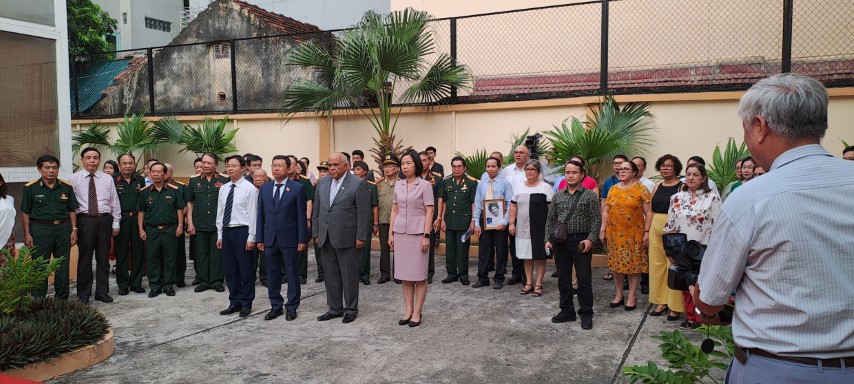The visit was “a source of great spiritual stimulus, strengthening the will, strength and courage of the Vietnamese army and people in the fight for the liberation of the South and the reunification of the country,” said Hai Ha, who also heads the Foreign Relations Commission at the National Assembly (Parliament).
Hai Ha stressed that Fidel Castro’s image waving the flag of the National Front for the Liberation of South Vietnam on Hill 241, taken on the occasion, remains in the memory of many Vietnamese, as does his phrase “for Vietnam we are ready to give even our own blood.”
That statement, he said, not only expresses the clear and faithful relationship between both countries in the past, but also in the present and the future.
In another part of his speech at the commemorative event on the beginning of the Commander-in-Chief’s visit to Vietnam and the liberated territory of the South in 1973, the legislator recalled that Cuba provided his country not only with spiritual and moral support, but also with enormous amounts of material aid.
The achievements in economic and social development made by our country are largely due to this stimulus and the close sentiment of the Cuban brothers during the difficult years of the fight for national liberation and in the construction and defense of the homeland, he stated.
Referring to this event, Cuban Ambassador Orlando Hernández recalled that not even the shocking news of the assassination of Salvador Allende, the danger of bombings and minefields, the destroyed bridges and devastated villages and the threat of a typhoon could prevent Fidel Castro from reaching the liberated zone of the South.
The diplomat noted that from the conversations between the Commander-in-Chief and the then Vietnamese Prime Minister Pham Van Dong, a commitment resulted to build five major works of economic-social impact and help to restore the Ho Chi Minh route, “an expression of the solidarity and absolute confidence in victory,” Hernández stressed.
He emphasized that political confidence has fostered bilateral cooperation in all spheres and made it possible for Vietnam to be Asia’s second trading partner and the first investor in Cuba today, playing a relevant role in projects linked to food security.
For Cuba, the participation of a high-level Vietnamese delegation in the G-77+China Summit, which will take place in Havana on September 15-16, is of special significance, he said before reiterating his gratitude to Vietnam for its invariable support in the fight against the United States’ intensified blockade.
The ambassador also thanked the Vietnamese News Agency (VNA) for sharing images from its historical archives, which will be exhibited as of Tuesday outside the Cuban Embassy, “so that passersby can learn about or remember a visit that was a victory for Cuba and Vietnam.”
Fidel Castro was the first and only world leader to travel to South Vietnam in the middle of the war to visit the liberated zone and meet with members of the Provisional Revolutionary Government and combatants of the National Front for the Liberation of South Vietnam.
jg/mem/mpm










